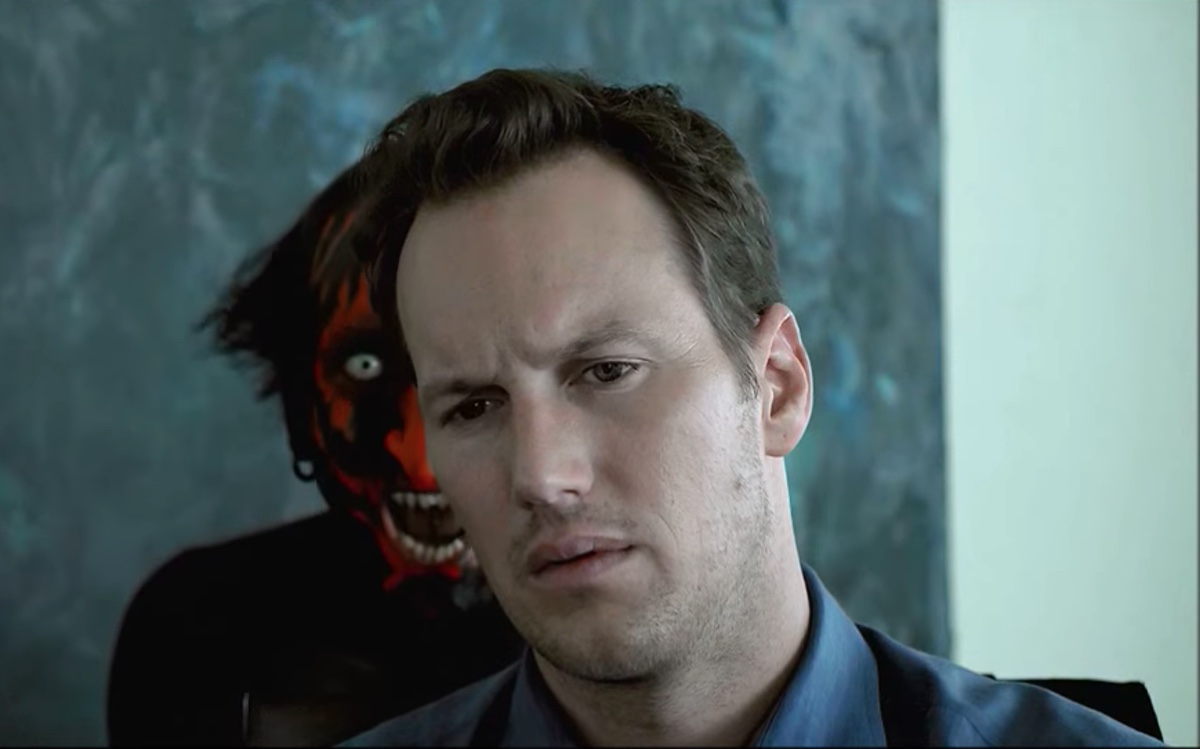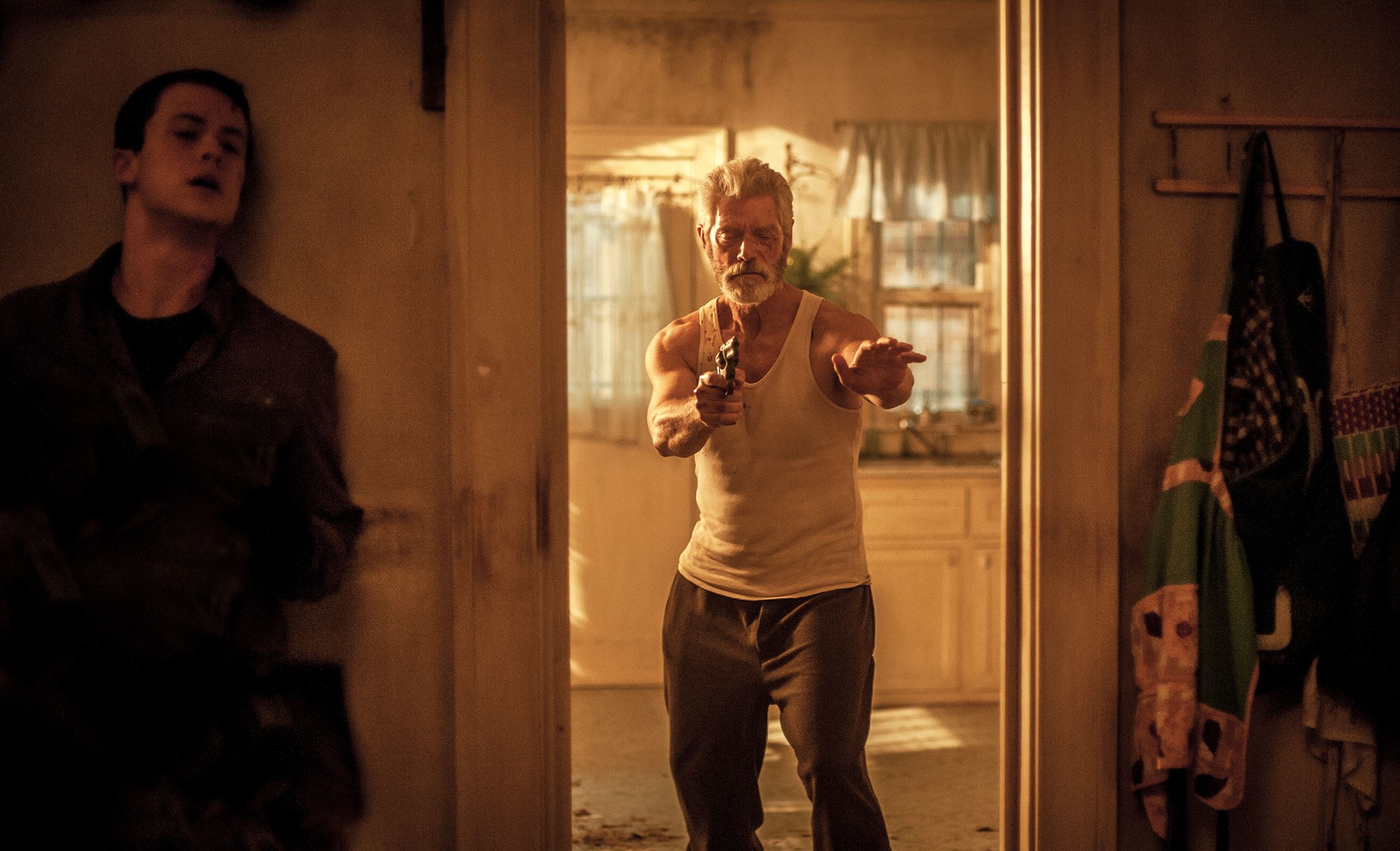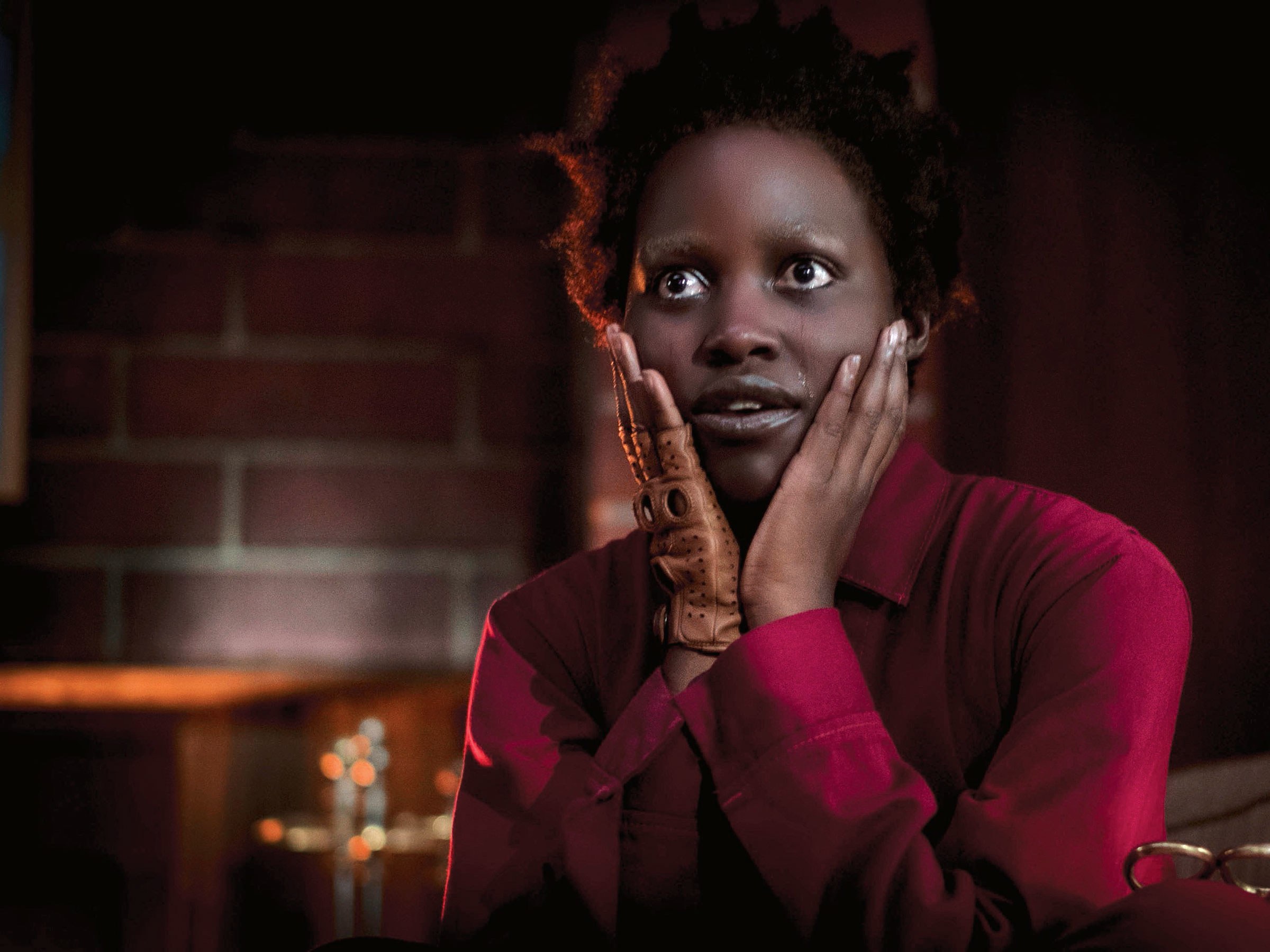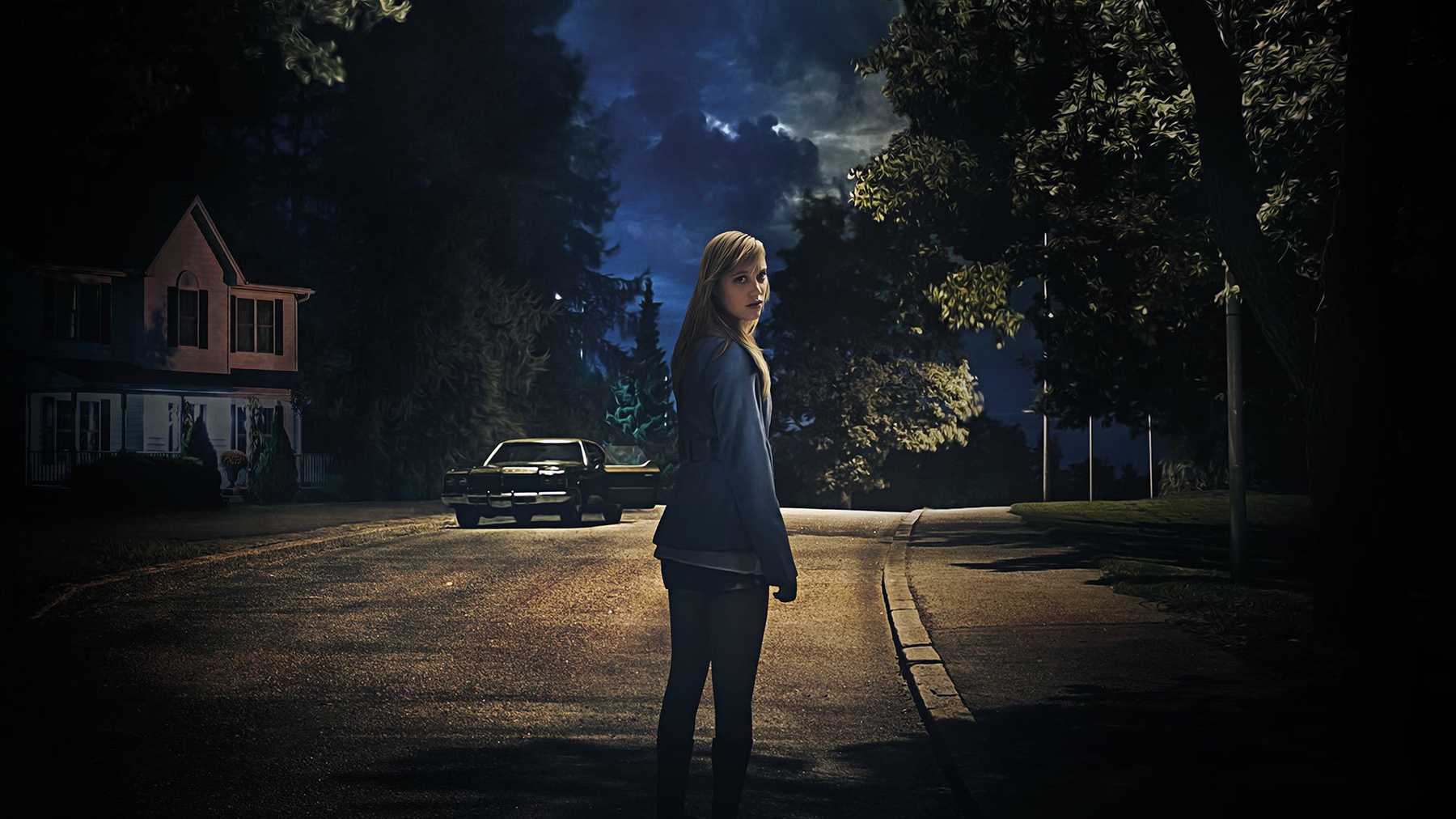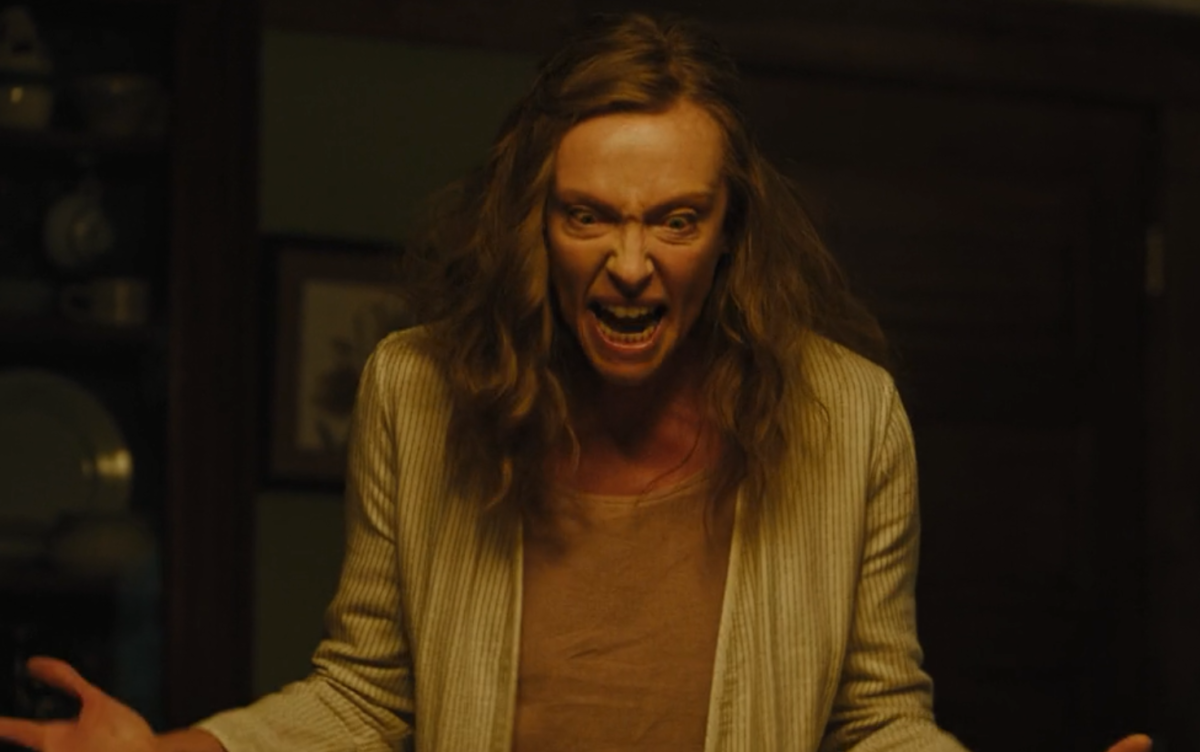So if you’re looking to curl into blankets with a bag full of candy and in the mood for some spooks, then we’ve got you, friend. We’re counting down the scariest films we’ve seen of the present decade and possibly of our whole lives. Hope you took a dookie, cause it’s about to get spooky!
5. Insidious (2011)
Regardless of the passage of time, there’s one staple of the genre that will never fade away. I’m talking about haunted houses and we’ve seen some pretty great haunted house films throughout the decade. Some of the more memorable ones include The Conjuring, The Woman in Black and films from Blumhouse Productions like Sinister. It’s kind of their speciality…even if they do feel passe after a while but we’ve gotta give credit where credit is due with the film that started it all, Insidious. Insidious is a circus of fun and frights. It forsakes its contemporaries’ need to present the aged old story with grounded realism. Instead, it embraces all the silliness of the trope and that is precisely why it’s so scary. The monsters here don’t look like sleek CGI rendered beings. They’re more reminiscent of deformed and possessed circus freaks trying to pull you into their sick world.
Director James Wan clearly has a love for old school practical effects and it shows. The makeup and costume design for the demonic entities of the spiritual realm of the Further have real personality to them. The two standouts here being the Lipsticked-Face Demon and the Bride in Black. The score is deliciously retro with eerie violins whispering sweet melodies right before their stings and of course, who can forget that song in the Lipsticked-Face Demon’s lair? Tip-toe through the tulips! If you haven’t had the chance to check out Insidious, you owe to yourselves to call some friends over and have a ball! When the fun’s over though, you may want to leave the lights on for a bit. Wan shows us that you can’t beat the classics.
4. Don’t Breathe (2016)
Taking a break from our arthouse pretensions and sensibilities, the next pick on our list is horror at its most primal and purest form. I’m talking about survival horror. The best kinds are the ones that instil a sense of vulnerability in the audience. Whether through depriving us of one of our key senses such as The Descent or a Quiet Place or limiting our heroes’ ability to move and manoeuvre due to external threats like sharks from The Shallows or the plants from The Happening. I know some folks are going to be really salty about Krasinski’s Quiet Place not making the spot. Sorry mate, we feel 2016’s Don’t Breathe manages to distil the same level of terror but with greater economy and thrills. The premise is as bare-bones as it gets. Bunch of kids break into a blind guy’s house to steal his cash, turns out he’s a mentally unhinged war veteran with a highly disturbing secret.
Wasting no time, the film immediately turns a would-be-heist into a deadly game of cat and mouse. Avatar’s Stephen Lang as the film’s blind hunter is more than a match for these kids. Physically intimidating and perfectly aware of his environment. It’s the horror of wandering into a wolf’s den and realizing that the wolves have the upper hand. The amount of sweat pooling around my hands near the end of the film was insane! Especially when he kills the lights, leaving the burglars at a severe disadvantage. Don’t Breathe might not have iconic creature designs or a huge budget but its simplicity speaks volumes of the film’s ability.
3. Us (2019)
It seems in a post-Trump era that socio-political commentary cannot be escaped. Whether in late-night talks shows or action thrillers, everyone has something to say about the state of the world. Director Jordan Peele has shown a remarkable ability to shine an ugly funhouse mirror at the world we live in today. While we found his first foray into the genre with 2017’s Get Out an impressive critique of suburban racism, we found his deconstruction of the American Dream in 2019’s Us absolutely terrifying. In no small part to Lupita Nyongo, Us’ monstrous doppelgangers ride a razor line between sinister and sympathetic. Their lack of speech, brutish use of violence and creepy presence isn’t just to revolt us. It’s to shame us as well. A chilling reminder of the ones we left behind.
Michael Abels’ score using the with vocals from a children’s choir is one of the most unsettling things I’ve heard in a long time. When it’s paired with the more sombre moments of the film such as when Red the leader of the doppelgangers engages with her privileged counterpart Adelaide Wilson, both played by Nyongo. Everything from the film’s production quality to character performance creates a tense ride from start to finish. But the ending…the ending is the true cherry on the cake. I won’t spoil it for you but needless to say, it made me reevaluate my place in the world and how with the right (or wrong) circumstances, the worst kinds of monsters can arrive from our own privilege. Click here to read our film critic’s review of Us.
2. It Follows (2014)
Though not as mentioned as much, there has always been a sexual component to the genre of horror films. Whether it’s through the subtext of horror movie monsters punishing promiscuous teens like in Friday the 13th or chaste female heroes defending themselves from perverse, deformed monsters pursuing them with films like Halloween and Hellraiser playing into the trope. For every new generation comes new anxieties and fears. For 2014’s It Follows, venereal diseases are allegorized in the form of a shape-shifting monster, hunting those it has marked. It can’t be killed. The only way to get it off your back is to sleep with someone else and have it come for them. It can take the form of anyone we know as it slowly lumbers towards us. It Follows isn’t just brilliant commentary on sexuality in the genre and the transactional nature of hook-up culture, it’s a testimony to slow-burn techniques over cheap jumpscares.
The beauty of the film is that the “monster” so to speak never feels the need to run towards its victims but rather casually strolls into frame before its prey erupts into a sprint. This forces us to be hypersensitive to framing, cinematography and to the environment of the film. It can come at any time from any direction, making us feel as tense as Maika Monroe’s Jaimie Height. So every moment is a ticking timebomb as we await the sudden and terrifying intrusion of the entity. Even as the end draws to a pretty happy conclusion, we can’t quite shake the feeling that something is still following Jaimie, or us for that matter.
1. Hereditary (2018)
Across the decade, we’ve seen some exceptional use of horror films as a way to explore and deconstruct the idea of family dynamics. Films like The Babadook, Bird Box, A Quiet Place and It Comes At Night are just some of the phenomenal pieces of horror cinema that capture the essence of a long-forgotten art form of the genre. The art of emotional terror. It’s not the swelling of the score before the incoming jumpscare but rather the tension of conflict, pain and evil inching closer and closer towards us. As tempted as we were to land Jennifer Kent’s The Babadook on our list, we simply had to give it over to Ari Aster’s Hereditary. The hallmark of Aster’s film is its ability to be both stunningly relatable and jaw-droppingly occultic.
The all-too-real familial conflicts of the Graham family works in tandem with the demonic drama rising to the surface. There’s no shadowy figure or horned beast skulking about, just the final hours of a struggling, mentally unstable mother on the verge of collapsing into despair, played superbly by Toni Collette. The psychological anguish and trauma of the family are never overshadowed by the spiritual subplot. Rather they supplement each other to make us doubt our senses and believe that the worst is yet to come. Hereditary replaces all the excitement of a roller coaster ride with all the breathless brutality of a panic attack. If you come in looking for the roar and raucous of jumpscares, you may just end up leaving with tearful silence.
